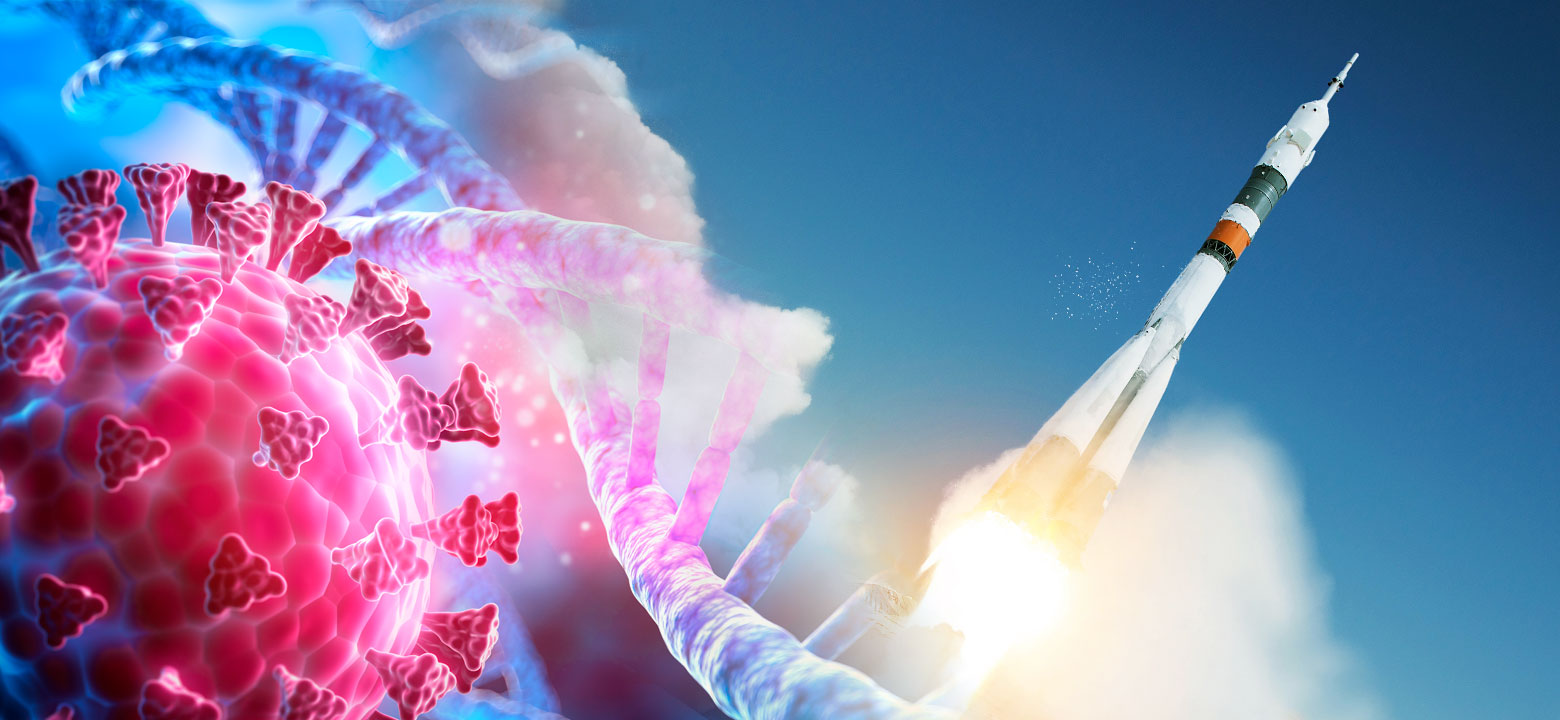
When the novel coronavirus hit, everyone sprang into action. Mutual aid networks popped up to support people whose employment was affected, automotive manufacturers pivoted to building ventilators, and textile manufacturers began pumping out personal protective equipment for hospitals. Recently, some public figures have criticized civilian space launches for consuming resources that could be used to continue to fight COVID-19. Could space tech actually help us battle pandemics?
There's a very interesting parallel between astronauts and people during lockdowns: isolation. As long as manned launches have been a thing, researchers have been trying to find ways to manage astronauts' physical and mental health and determine the effects that prolonged isolation has on human beings. Their observations and strategies have given rise to two crucial weapons in the fight against the pandemic: isolation management, and telehealth.
Many critics of lockdowns argued that their negative mental health impact would outweigh their benefits. Others argued the reverse—that avoidable deaths and the long-term impact of unchecked COVID-19 would cause more harm than lockdowns would. Regardless, space agencies have been coming up with ways to deal with isolation for decades. Astronauts are expected to be away from Earth for weeks or months at a time. They also have even less contact with friends and family than the average person during a lockdown would. Because of this, they've had to come up with ways to stay mentally healthy and manage feelings of loneliness and isolation. Their strategies can help people struggling with lockdowns and quarantines to manage their mental health.
While astronauts are in space, there's very little room for error. Their health metrics are carefully tracked to detect any problems. Telemedicine was developed by space agencies to keep astronauts healthy. When your patients are hundreds of thousands of miles away, you have to come up with new ways to monitor and take care of them. The same is true when people are in lockdown. Some of the techniques pioneered by the space program could also be used to monitor and administer care to people suffering from active COVID-19 infections, reducing the risk to healthcare workers.
Space agencies and related tech firms have also responded directly to the pandemic itself. They have access to incredible data storage and processing power and have turned this to modeling, impact studies and other research needs.
In some areas, particularly rural ones, connectivity was a struggle. Students had difficulty attending online classes, and hospitals in remote areas had trouble coordinating with suppliers and other hospitals. Space firms stepped in to help provide internet connectivity to these areas, allowing them to keep functioning at the height of the pandemic.
It's hard to overestimate the value of a bird's eye view sometimes. When it comes to satellite imagery, that “bird's eye view” becomes literal. It can help facilitate planning, vaccine distribution, and disease transmission. This has already helped remote areas deal with pandemics in the past—satellites were able to detect underserved areas in Nigeria during the last polio outbreak, which allowed them to get help.
Monitoring people aren't all the satellites can do, either. It's a known fact that viruses, bacteria, and other pathogens all have ideal temperature and humidity ranges. If conditions swing too far outside of this threshold, they begin to die off. Weather satellites can monitor conditions to detect when certain pathogens will have the easiest time spreading, so citizens, officials, and hospitals can plan ahead. Right now, research seems to indicate that warm and humid conditions somewhat reduce the spread of COVID-19, while cold and dry ones increase it.
For diseases with known vectors, like malaria or rabies, satellite monitoring of the responsible vector populations can help predict outbreaks. When satellites detect upswings in mosquito populations, it can help predict increases in malaria cases.
Aerospace is a multibillion-dollar industry that consumes a vast quantity of resources, so it makes sense to turn a critical eye toward it during a pandemic. Nonetheless, these resources aren't being wasted—space tech is already being used to help fight the novel coronavirus and can be employed to help humans combat other pandemics in the future.